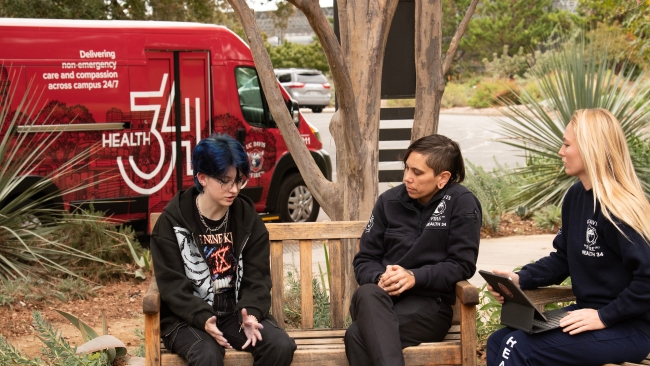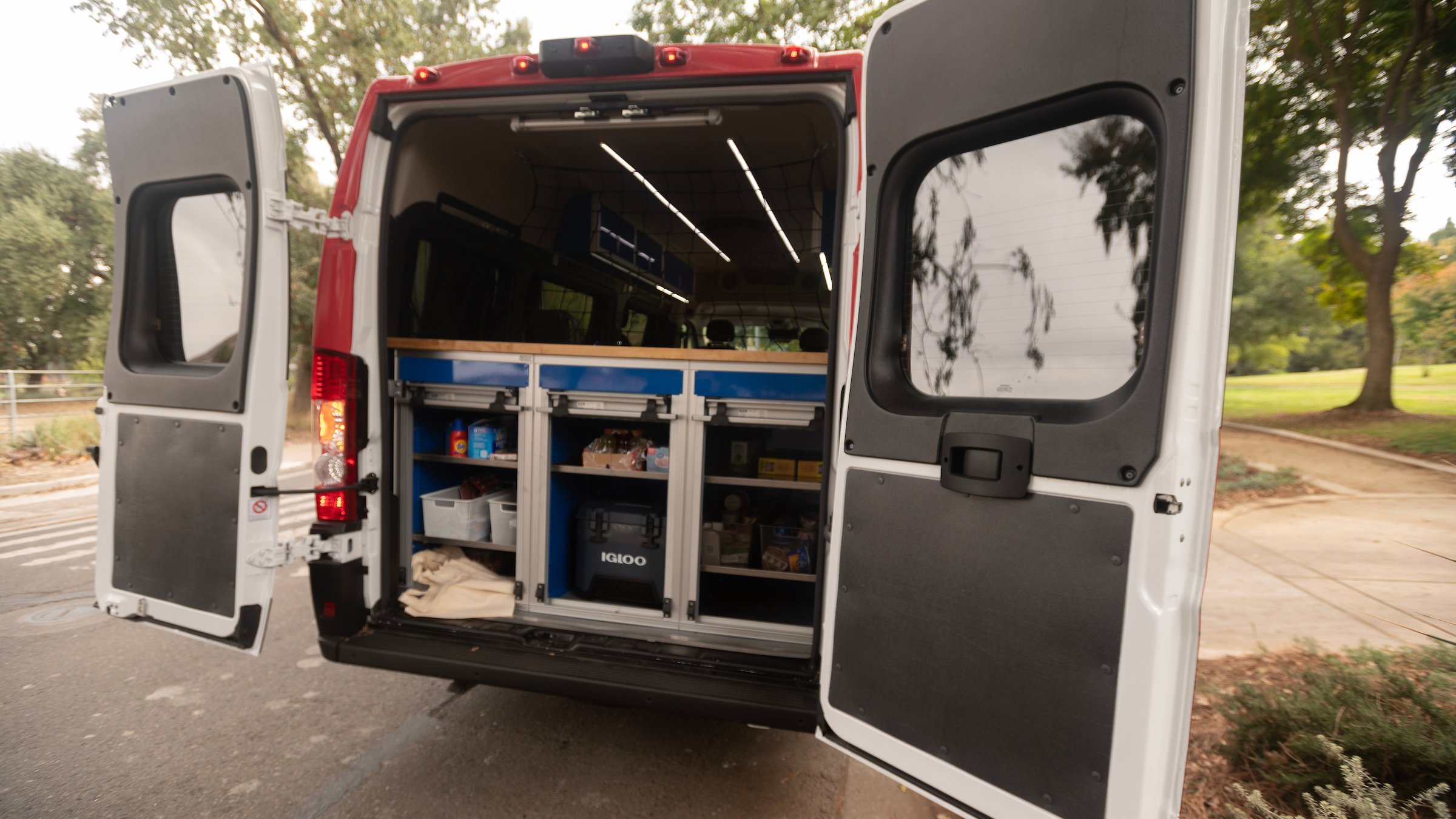You have /5 articles left.
Sign up for a free account or log in.

Students at the University of California, Davis, can receive help from staff at the UCD Fire Department for nonemergency situations.
UC Davis
One-third of students say they do not know where to turn on campus if they or a friend experiences a mental health crisis, according to 2023 Student Voice survey data from Inside Higher Ed and College Pulse.
As of September, students at the University of California, Davis, can call a 10-digit hotline and receive help from the UC Davis Fire Department for nonemergency needs, including mental health concerns.
“Health 34 isn’t a crisis-response team; it’s a crisis-prevention team that aims to normalize asking for help early, before a crisis—and when one can’t be averted, working to support after,” says Chief Nathan Trauernicht of the UCD Fire Department.
The mobile unit is part of a larger institutional commitment to reform public safety initiatives, providing different approaches to crisis intervention and mental health support.
Providing Aid in Crisis
Colleges and universities around the country are trialing mobile crisis-response teams, but most are located in police departments and led by mental health providers. UC Riverside and Cal State Long Beach are two other California institutions investing in nonpolice emergency responders who can aid students in crisis.
A June 2022 Student Voice survey by Inside Higher Ed and College Pulse found only 34 percent of students have a great deal of trust in campus safety personnel, while 18 percent have no trust or little trust in campus safety. Around 9 percent of students said the presence of police officers on campus makes them feel less safe, with Black students more likely to feel less safe (14 percent) compared to their peers.
What’s the need: Previously, the UCD Police Department responded to mental health emergency calls. The university, on the recommendation of a task force, established Health 34 to have an alternative model of providing care for students in need and partnered with the Fire Department to lead the effort.
Health 34, named after UCDFD’s station No. 34, is different because it’s in-person support, offered 24-7 on campus. The nonclinical care given focuses on education to prevent crisis and harm reduction through a wide range of supports.
How it works: A student can call the hotline at any time, on any day of the week, and Health 34 staff will respond in partnership with an emergency medical technician employed by UCDFD.
Health 34 is a four-person team of health education specialists, working 24-hour shifts. Each specialist is trained (or in the midst of training) as licensed paramedics and has completed a program in lay counseling.
The Health 34 team drives around in a special red van stocked with food, bottled water and toiletries. The van has benches in the back so staff can provide care in private, and it can also accommodate a person who uses a wheelchair.
The vision for Health 34 is to be able to meet a student where they are whenever help is needed. Staff members also hope the initiative increases help-seeking behaviors among students and decreases stigma around getting aid.
The initiative took about two years to launch, with several months spent troubleshooting scenarios, establishing protocols and building connections with campus resource providers.
The university allocated around $300,000 to fund the program and received $700,000 in state funding, which is distributed to team member training, salaries and benefits as well as the van, basic needs supplies and educational and marketing materials.

The Health 34 vehicle is stocked with basic needs supplies, medical aid and more to assist a student whereever they may need help.
UC Davis
The impact: Health 34 officially launched Sept. 5, 2023. On average, the mobile help line receives between five to six calls per day, with almost 200 field visits by the second week of December. Some requests can be handled entirely over the phone, as well, Trauernicht says.
Most commonly, students call to get help with anxiety, navigating interpersonal relationships, medical resource navigation, thoughts of self-harm, academic pressures and concerns or housing support.
Trauernicht hopes Health 34 can serve as a model for others to use in their own communities, and the program may lend itself to future growth with additional units at UCD or an expansion to UCD’s Sacramento campus.
“This is a new way of approaching the point at which we interact with people’s bad days,” Trauernicht says. “We know that the data we collect will help inform future programs and services, and until we have a larger data set, we believe that every person we can support with our help is a success.”
What is the most innovative aspect of a broader student health and wellness initiative on your campus? Tell us about it.




